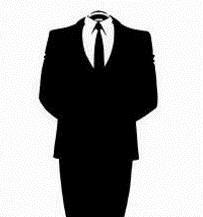 Ever since the Supreme Court ruled on Citizens United v. the Federal Election Commission in 2010, we’ve seen an ever-increasing flow of “dark money” into local, state and federal elections. Well-heeled individuals and companies have been able to spend whatever amount of money they wish to advocate for issues and to support or oppose candidates who catch their eye.
Ever since the Supreme Court ruled on Citizens United v. the Federal Election Commission in 2010, we’ve seen an ever-increasing flow of “dark money” into local, state and federal elections. Well-heeled individuals and companies have been able to spend whatever amount of money they wish to advocate for issues and to support or oppose candidates who catch their eye.
Theoretically, any organization with the primary purpose of spending on elections must register as a PAC and disclose its donors’ identities. But nonprofits that advocate on policy issues — for instance, environmental groups or gun rights groups — also can spend money on campaign ads. They can do so by registering as “social welfare” groups under section 501(c)(4) of the tax code, and they don’t have to publicly disclose their donors.
Spending of this sort from issue advocacy groups has been common for decades. But in recent years, new groups have used this “social welfare” section of the tax code to spend increasingly large sums of money on elections, or on ads attacking candidates of one party. Others are formed as “business leagues” under section 501(c)(6) of the tax code. These are “dark money” groups because they seem to be formed primarily to obscure the identities of their donors.
The Supreme Court’s ruling in Citizens United essentially held that spending money on election ads is a form of free speech, and thus there’s little Congress can do to limit it. In contrast, direct donations to political candidates could remain regulated and restricted. This created an incentive for moneyed groups and individuals to affect elections by spending on their own election ads rather than donating to candidates or parties.
Efforts to overturn or modify the Citizens United ruling have gone nowhere, and this galls people who believe the electorate has a right to know exactly who is advocating for a particular point of view. After all, it seems to matter whether a “solar energy reform” initiative is being advocated by an environmental group trying to expand alternative energy or an established utility trying to set up roadblocks to new technologies. (Either group might have an ax to grind, so assume nothing about which is more “virtuous.”)
It doesn’t appear that any significant reform to the Citizens United ruling is coming any time soon. Here’s where you come in.
If you see an election ad, check out the name of the sponsoring group and look for its website. If a website doesn’t exist, or doesn’t identify the group’s major contributors, simply ignore the group’s message on the principle that there’s no reason to trust any message distributed anonymously.
Better yet, take time to research the issue that inspires the group’s position and make up your own mind about its merits. Dark money can be rendered powerless by an informed, active electorate, as Karl Rove learned in 2012.
Sound like too much work? I’d argue that it’s your duty as a citizen to be informed and engaged, so put in the work and be a meaningful part of the process.
We don’t need more laws to shield us from the negative effects of Citizens United. We just need smart, informed, active citizens. So do your part, OK?

